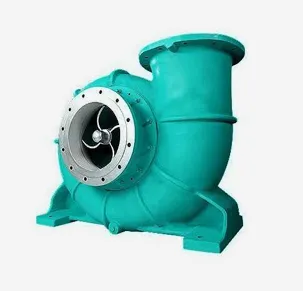TEL:
+86 13120555503
Uzbek
- Afrikaans
- Albanian
- Amharic
- Arabic
- Armenian
- Azerbaijani
- Basque
- Belarusian
- Bengali
- Bosnian
- Bulgarian
- Catalan
- Cebuano
- Corsican
- Croatian
- Czech
- Danish
- Dutch
- English
- Esperanto
- Estonian
- Finnish
- French
- Frisian
- Galician
- Georgian
- German
- Greek
- Gujarati
- Haitian Creole
- hausa
- hawaiian
- Hebrew
- Hindi
- Miao
- Hungarian
- Icelandic
- igbo
- Indonesian
- irish
- Italian
- Japanese
- Javanese
- Kannada
- kazakh
- Khmer
- Rwandese
- Korean
- Kurdish
- Kyrgyz
- Lao
- Latin
- Latvian
- Lithuanian
- Luxembourgish
- Macedonian
- Malgashi
- Malay
- Malayalam
- Maltese
- Maori
- Marathi
- Mongolian
- Myanmar
- Nepali
- Norwegian
- Norwegian
- Occitan
- Pashto
- Persian
- Polish
- Portuguese
- Punjabi
- Romanian
- Russian
- Samoan
- Scottish Gaelic
- Serbian
- Sesotho
- Shona
- Sindhi
- Sinhala
- Slovak
- Slovenian
- Somali
- Spanish
- Sundanese
- Swahili
- Swedish
- Tagalog
- Tajik
- Tamil
- Tatar
- Telugu
- Thai
- Turkish
- Turkmen
- Ukrainian
- Urdu
- Uighur
- Uzbek
- Vietnamese
- Welsh
- Bantu
- Yiddish
- Yoruba
- Zulu
Telephone: +86 13120555503
Email: frank@cypump.com
Fev . 14, 2025 02:29 Back to list
pipeline pump
Pumps and pipeline services are crucial components in various industries, providing essential support in transporting liquids, gases, and slurries over long distances. These systems are the backbone of sectors like oil and gas, water treatment, agriculture, and chemical processing. This article delves into the intricate world of pumps and pipeline services, emphasizing the significance of selecting the right systems, innovations in the field, and guidelines to ensure optimal performance.
Innovation and Trends in Pumps and Pipeline Services The continuous drive for efficiency and environmental sustainability has sparked innovation in the field of pumps and pipeline services. Some of the latest trends include - Smart Pumps and IoT Integration The integration of Internet of Things (IoT) in pump systems allows for real-time monitoring and control. This technology enables predictive maintenance, reduces downtime, and optimizes energy consumption. - Energy-Efficient Designs With growing environmental concerns, manufacturers are focusing on producing energy-efficient pump designs. Variable frequency drives (VFDs) and advanced impeller designs are reducing the energy footprint of pump operations. - Advanced Materials The use of materials like high-density polyethylene (HDPE) and fibre-reinforced polymers in pipeline construction offers enhanced corrosion resistance and durability, crucial for harsh environments. Guidelines for Optimal Pump and Pipeline System Performance To ensure that pumps and pipeline systems operate at peak performance, a few critical guidelines should be followed - Proper Sizing and Selection Ensure pumps and pipelines are correctly sized to handle the expected flow rates and pressures. Incorrect sizing can lead to increased wear, energy consumption, and frequent breakdowns. - Regular Maintenance Implement a robust maintenance schedule to prevent unexpected failures. Regular lubrication, seal checks, and calibration can help maintain efficiency and extend equipment life. - Training and Expertise Ensure personnel involved in the operation and maintenance of these systems are well-trained and knowledgeable about the latest technologies and best practices. In conclusion, pumps and pipeline services are indispensable across various industries, supporting the smooth and efficient transport of fluids. By embracing innovations, implementing regular maintenance protocols, and ensuring proper equipment selection and training, organizations can achieve significant cost savings and enhance their competitive edge in an ever-evolving market landscape.


Innovation and Trends in Pumps and Pipeline Services The continuous drive for efficiency and environmental sustainability has sparked innovation in the field of pumps and pipeline services. Some of the latest trends include - Smart Pumps and IoT Integration The integration of Internet of Things (IoT) in pump systems allows for real-time monitoring and control. This technology enables predictive maintenance, reduces downtime, and optimizes energy consumption. - Energy-Efficient Designs With growing environmental concerns, manufacturers are focusing on producing energy-efficient pump designs. Variable frequency drives (VFDs) and advanced impeller designs are reducing the energy footprint of pump operations. - Advanced Materials The use of materials like high-density polyethylene (HDPE) and fibre-reinforced polymers in pipeline construction offers enhanced corrosion resistance and durability, crucial for harsh environments. Guidelines for Optimal Pump and Pipeline System Performance To ensure that pumps and pipeline systems operate at peak performance, a few critical guidelines should be followed - Proper Sizing and Selection Ensure pumps and pipelines are correctly sized to handle the expected flow rates and pressures. Incorrect sizing can lead to increased wear, energy consumption, and frequent breakdowns. - Regular Maintenance Implement a robust maintenance schedule to prevent unexpected failures. Regular lubrication, seal checks, and calibration can help maintain efficiency and extend equipment life. - Training and Expertise Ensure personnel involved in the operation and maintenance of these systems are well-trained and knowledgeable about the latest technologies and best practices. In conclusion, pumps and pipeline services are indispensable across various industries, supporting the smooth and efficient transport of fluids. By embracing innovations, implementing regular maintenance protocols, and ensuring proper equipment selection and training, organizations can achieve significant cost savings and enhance their competitive edge in an ever-evolving market landscape.
Share
Next:
Latest news
-
ISG Series Vertical Pipeline Pump - Chi Yuan Pumps | High Efficiency & Energy Conservation
NewsAug.08,2025
-
ISG Series Vertical Pipeline Pump|Energy Efficiency&Durability
NewsAug.08,2025
-
Heavy-Duty Submersible Sludge Pump | High Performance Solutions
NewsAug.08,2025
-
ISG Series Vertical Pipeline Pump - Chi Yuan Pumps | Energy Efficiency & Low Noise
NewsAug.08,2025
-
ISG Series Vertical Pipeline Pump - Chi Yuan Pumps | High Efficiency, Low Noise
NewsAug.07,2025
-
ISG Series Pipeline Pump-Chi Yuan Pumps|High Efficiency, Low Noise
NewsAug.07,2025










